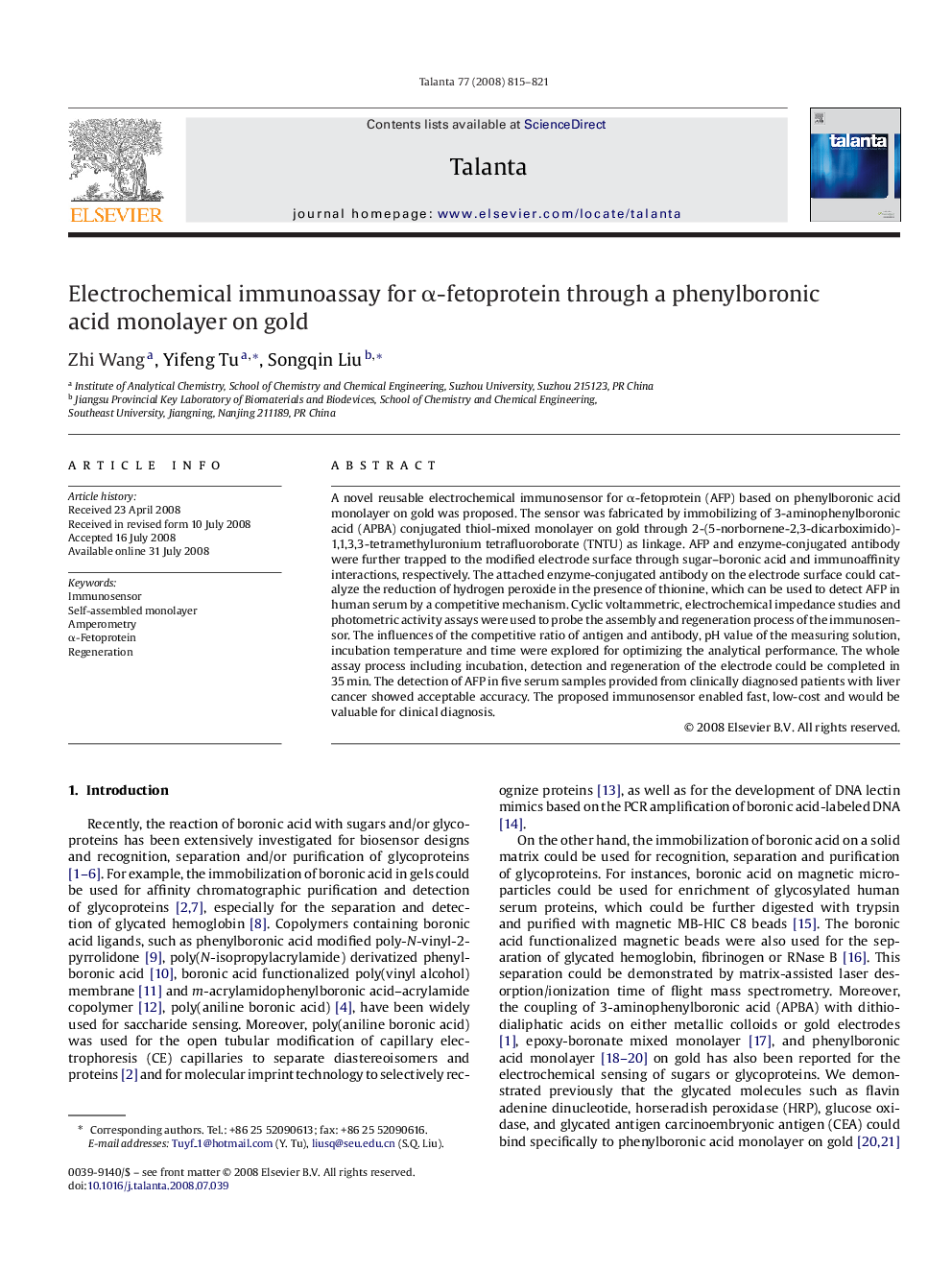| Article ID | Journal | Published Year | Pages | File Type |
|---|---|---|---|---|
| 1243141 | Talanta | 2008 | 7 Pages |
A novel reusable electrochemical immunosensor for α-fetoprotein (AFP) based on phenylboronic acid monolayer on gold was proposed. The sensor was fabricated by immobilizing of 3-aminophenylboronic acid (APBA) conjugated thiol-mixed monolayer on gold through 2-(5-norbornene-2,3-dicarboximido)-1,1,3,3-tetramethyluronium tetrafluoroborate (TNTU) as linkage. AFP and enzyme-conjugated antibody were further trapped to the modified electrode surface through sugar–boronic acid and immunoaffinity interactions, respectively. The attached enzyme-conjugated antibody on the electrode surface could catalyze the reduction of hydrogen peroxide in the presence of thionine, which can be used to detect AFP in human serum by a competitive mechanism. Cyclic voltammetric, electrochemical impedance studies and photometric activity assays were used to probe the assembly and regeneration process of the immunosensor. The influences of the competitive ratio of antigen and antibody, pH value of the measuring solution, incubation temperature and time were explored for optimizing the analytical performance. The whole assay process including incubation, detection and regeneration of the electrode could be completed in 35 min. The detection of AFP in five serum samples provided from clinically diagnosed patients with liver cancer showed acceptable accuracy. The proposed immunosensor enabled fast, low-cost and would be valuable for clinical diagnosis.
